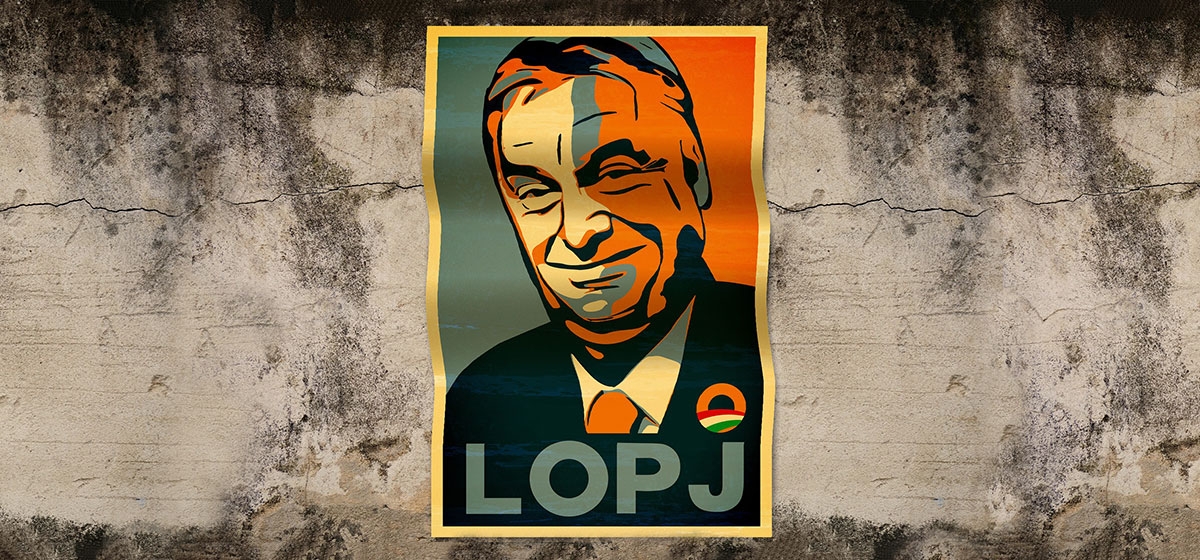The Media Has It All Wrong

I mentioned last week that I recently visited Switzerland, Austria and Hungary, and that if we think things have gone nuts in the U.S., we have no idea.
The gentle Swiss, as I pointed out last week, have become enamored of right-wing, populist parties and are about to vote on a flat-out silly leftwing ballot initiative designed to destroy 10% of the Swiss economy, i.e., banks.
But the Swiss are an island of sanity compared to Austria. In Austria, the Freedom Party, a right-wing, populist, nationalist, anti-immigration party founded by former Nazis and SS officers, is the junior partner in the current Austrian government coalition. The last time this happened (in 2000, I think), western Europe ostracized Austria. This time around, the Austrian chancellor will be President of the European Council.
Still, compared to Hungary, Austria is a bastion of moderation. If you get all your news from U.S.-based media you probably know very little about what’s going on in Hungary. After all, its glorious past notwithstanding, Hungary is smaller than Los Angeles.
If, on the other hand, you get some of your news from UK-based media—the Financial Times, the Economist, the London Times, the Guardian—you probably think that the Hungarians have lost their minds and that their leader, Viktor Orbán, is The Man Who Would Destroy Europe.
A recent case in point is Gideon Rachman, who writes for the Financial Times and who used to offer thoughtful commentary about Europe. Rachman penned a column in April in which he referred to “the rot at the edge of the EU.” He was referring to Hungary, certainly, but also to Poland, the Czech Republic, Slovakia, Austria and, possibly, Switzerland.
Hello? The aggregate population of these countries is 82 million people, the same as Germany, and far larger than Rachmann’s little England (55 million). If we add in Italy, where not one, but two populist parties are in power, we find that populists are running countries the size of Germany and France combined.This is hardly a fringe phenomenon.
I’m not calling out Rachman because I specifically disagree with his dim view of what is going on in the EU. For the most part, I share his concerns. But what good does it do to call decent people names? Rachman has become so unhinged by the rise of populism that he has ceased to be useful and has become part of the problem.
Here, then, are the elite media’s views on the rise of illiberal democracy, followed by the more thoughtful versions I heard on my recent trip to the “rotten fringe.”
Media: Viktor Orbán, who coined the phrase “illiberal democracy,” is a tyrant along the lines of Vladimir Putin in Russia and Recep Erdoğan in Turkey.There is no such thing as “illiberal” democracy, since democracy itself means “liberal” democracy, that is freedom of the press (especially!), protection for minorities, an independent judiciary, the welcoming of migrants seeking a better life, and so on.
Your Humble Blogger (YHB): Oh, really? Democracy means people get to vote on who their leaders will be, period. All else is liberal, “advanced” opinion (even if we happen to agree with it). The success of Orbán, Putin, and Erdoğan, to say nothing of China, and the relative decline of the U.S. and (especially) western Europe, strongly suggests that alternative forms of political organization must be doing something right, especially if what we care about is improvement in the lives of ordinary people.
Media: People who voted for Viktor Orbán (or Donald Trump) are racists, misogynists, and anti-migrant bigots. They resent the fact that their (white) privileges are coming to an end with the rise of minority and migrant rights and that’s the long and short of it.
YHB: As noted above, calling people nasty names makes you part of the problem, not part of the solution. No doubt some of the Trump and Orbán supporters are in fact bigots (as are many people who voted against them). But the vast majority aren’t. Moreover, they don’t resent improvement in the status of minorities or immigrants at all. What they resent is that their own status hasn’t improved one whit in many decades. Does elite opinion actually think that the way to achieve equality is to hold back the core population for decades until the disadvantaged can catch up? This would seem to be the obvious conclusion from the results of elite policymaking over the last three or four decades. But if so, I humbly suggest that elite policymakers are in danger of being trampled into dust by the jackboot of history.
Media: All the Forces of the Western World must be marshaled to stop illiberal leaders: impeach Trump, reverse the Brexit vote, have the EU squeeze the lifeblood out of Hungary, Austria, Poland, etc.
YHB: That these people were duly elected, often by large majorities, seems not to bother the elite at all. Meanwhile, they love the tyrant, Xi, because China is the only country large enough to stand up to the U.S. Does no one see a problem here?
Media: Liberal democracy is the only legitimate form of government and it will prevail—or the world won’t be worth living in.
YHB: According to my calculation, authoritarian governments (China, most of Africa and the Middle East, parts of Latin America) and illiberal democracies (almost everywhere else) vastly outnumber the small and dwindling liberal democracies, which control only Canada and western Europe. It used to be obvious to the elite that the end of history had arrived and liberal democracy had triumphed. That triumph, however, was not only premature, but the world is headed powerfully in another direction. It’s not precisely democracy that’s in retreat; it’s liberal democracy that’s in retreat.
Instead of viewing Trumpist America—and Orbánist Hungary and so on—as appalling and illegitimate, elite opinion needs to realize that the rot isn’t all on the populists’ vegetables. It was the rot in elite policymaking that got us where we are, and it’s that rot that will, in fact, kill liberal democracy if it isn’t fixed.
Next up: On Illiberal Democracies, Part III





